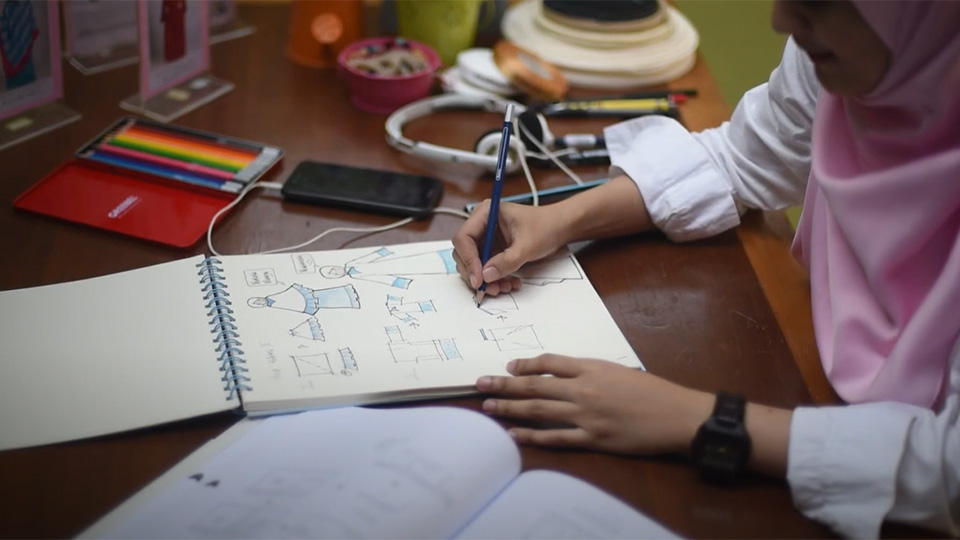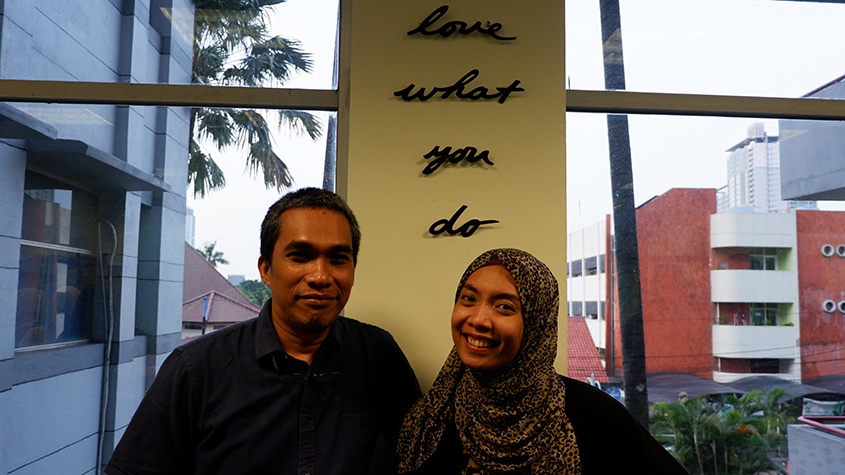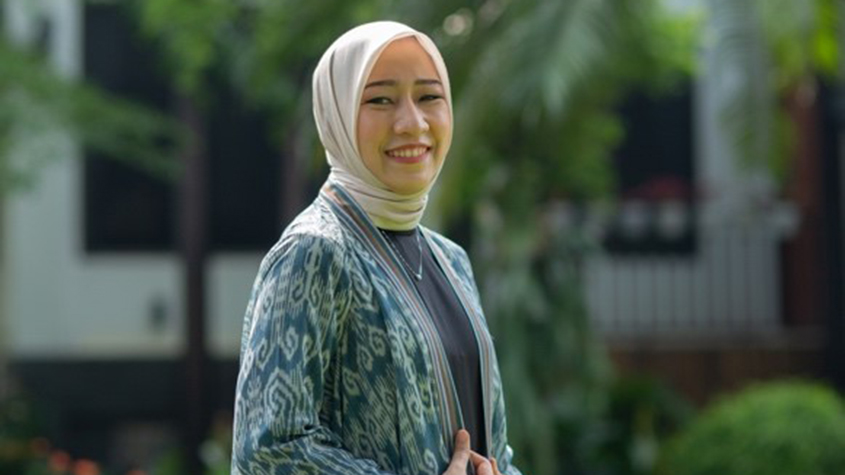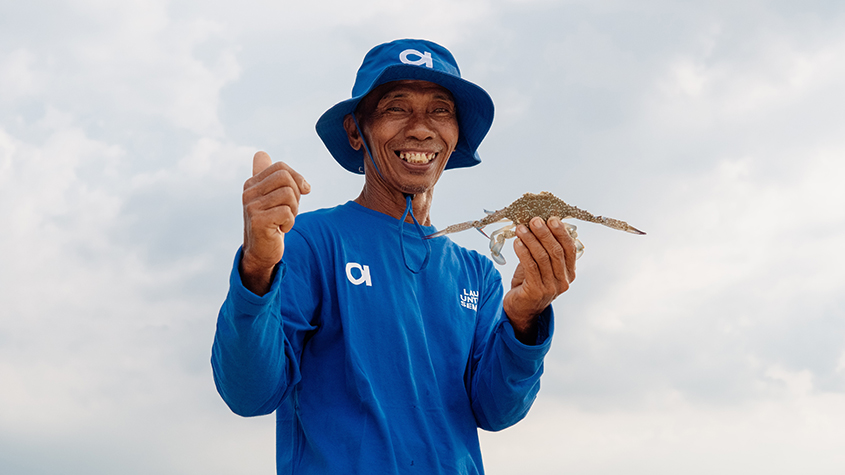A Self-Made Indonesian Woman Entrepreneur Shares Lessons Learned, Importance of Peer Support
Becoming a woman entrepreneur in Indonesia is not an easy journey. When Yendi Amalia was offered to run The Wordsmith Group, a language company based in Jakarta, in 2013, she had no idea how to run a business or the particular hurdles on the road for a woman entrepreneur. Less than a decade later, Yendi grew the company and founded a support network for women entrepreneurs.
The 41-year-old graduated with a journalism and communication degree from Universitas Islam Bandung. After graduation, she worked for an advertising company as a copywriter, before becoming a freelancer juggling projects ranging from translation to scriptwriting, to copywriting; “anything relating to writing.

“When I was approached in 2013 by the owner of The Wordsmith Group, I just said yes, but it has no relation to what I was doing earlier.” “I was expected to run a company, with clients, with projects, and a team to manage.”
With no business experience, background in finance or leadership, or how to build a business plan, Yendi still managed to grow the company from 2 translators to a team of 12 in-house staff.
Feeling responsible for her staff, their salary, their health insurance, and alone in the managerial function, she tried learning from trials and errors and was constantly looking for better solutions; “It was exhausting for me”, she said.
The Limitations of Business Coaching Programs
Realizing she needed help, she went to business coaching classes, seeking advice from mentors, “anything that could help, in particular on finance, and how to get a healthy cash flow.”
However, if some organizations are proposing classes or events to help entrepreneurs, they are very scattered. Class registration often requires prior membership and there is no follow-up after the classes are delivered to ask questions or communicate with other attendees.
We Mean Business – Indonesian Women Entrepreneur Networks
Yendi realized that what helped the most was meeting other peers, and she founded the “We Mean Business”, an ecosystem for entrepreneurship and leadership for women and minorities, so women entrepreneurs can share their ideas and experiences and support each other to grow their businesses. “It can be discussions in a session we call ‘parking lot’ to talk about achievement, guilt, anything. You can talk to someone at the same level.” “We don’t need a pat on the back but to meet women who relate to our struggles.” “It takes a village to raise a women entrepreneur”.
Access to finance is very difficult for women entrepreneurs in Indonesia. In the future, We Mean Business expects to not only provide mentorship but also investment opportunities so that more mature entrepreneurs can lend small amounts to help in the early stage of new companies. The investor is someone from the community, who will help the young or early entrepreneur with his/her business plan and establish a repayment schedule. We Mean Business is also considering establishing a micro-credit mechanism with the goal that more mature entrepreneurs can learn to be investors and help sustain more local businesses.

Some other women networking initiatives that Yendi follows, among many, are the Wanita Wirausaha Femina (Femina Women Entrepreneurs), offering education, networking opportunities, and mentoring for female entrepreneurs; the Indonesian Women Forum, an annual event hosting programs and classes to develop skills and network; the Indonesian Women Entrepreneurs Network (IWEN), a platform for Indonesian Women Entrepreneurs to share their ideas and experiences and support each other to grow their businesses.
Roadblocks for Women Entrepreneurs in Indonesia
“Being a woman entrepreneur in Indonesia is challenging, it’s tricky,” she said. Societal expectations of women confine them to raising children and accomplishing domestic duties. Women professionals are expected to hold a job that will not affect the rest of those duties. Their close circle holds a disapproving look on a woman deciding to become a business owner.
Most women who become entrepreneurs in Indonesia do not do it by choice. They go into entrepreneurship as a way to survive, maybe because their husband died, or they got divorced without alimony, they have to be the breadwinner, according to Yendi.
There is also an imbalance between male and female business owners/leaders in opportunities, and in particular access to finance, she added.
Those factors lead to weak ambition in women entrepreneurs because there is a lack of a support system.
Career opportunities at The Wordsmith Group for the less privileged
One of the priorities of The Wordsmith Group, beyond business objectives, was to serve humanity, explained Yendi. Implementing a fully remote working style since its establishment, the company decided to offer job opportunities to people considered as “second-class citizens”: women, people with different abilities, often kept in a financial dependency situation in their family, and LGBTQ people who do not showcase their sexual orientation for fear of being bullied or fired, she said. “We want to empower them.”
Almost 90 percent of the staff is female and the working environment allows the staff to manage their own time, giving them the flexibility to still attend to other priorities in life, such as being a caregiver for elderly parents.
Yendi Amalia’s Advice to Candidate Entrepreneurs
Being a woman entrepreneur or leader, Yendi said, “enables you to have your own identity”. “You don’t want your identity to fade away because you are somebody else’s mom or spouse. It gives you a space to develop yourself.”
Other entrepreneurs will help you, I don’t know any business entrepreneurs not willing to provide help to peers,” she added. The Wordsmith Group registered its trademark in 2016, which was granted in 2019. It allows the group to avoid knock-offs.
Young entrepreneurs must register their brand, their logo, to avoid replication, and create security around their business, she remarked.
“Entrepreneurship is the loneliest journey one can ever take. But I find it is very rewarding at the same time”, she said.



